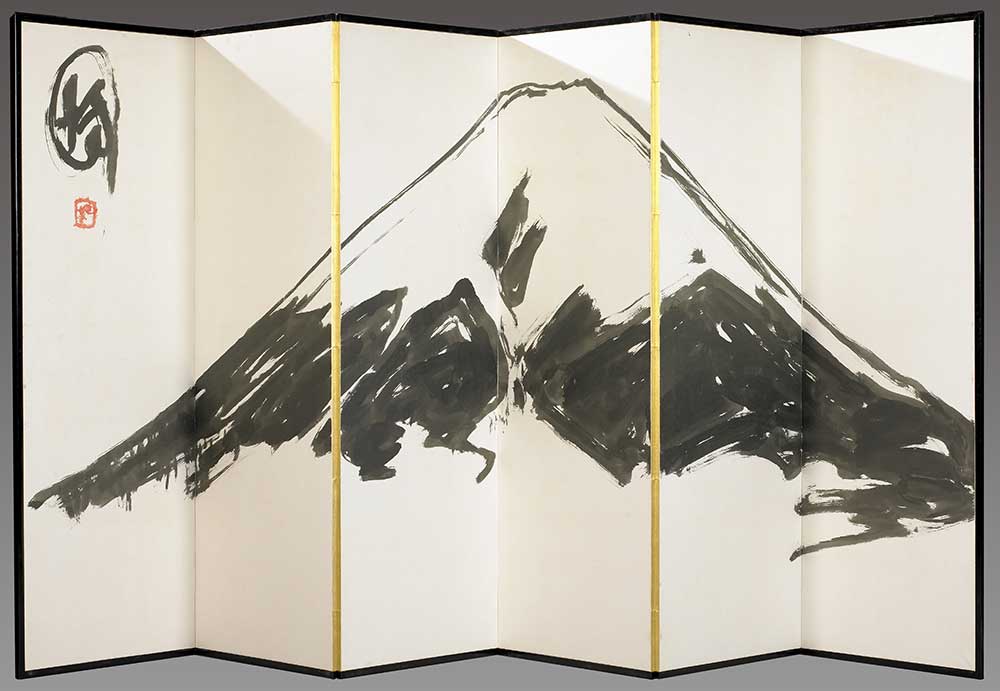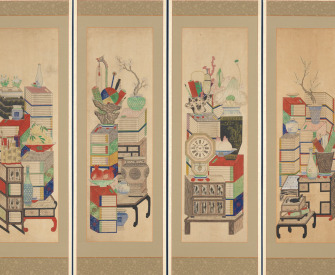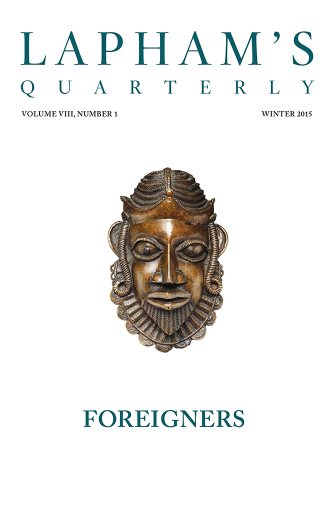I have been a stranger here in my own land all my life.
—Sophocles, 441 BCMiddle Passage
Olaudah Equiano endures new refinements in cruelty.
We came in sight of the island of Barbados, at which the whites on board gave a great shout and made many signs of joy to us. We did not know what to think of this; but as the vessel drew nearer, we plainly saw the harbor and other ships of different kinds and sizes, and we soon anchored among them off Bridgetown.
Many merchants and planters now came on board, though it was in the evening. They put us in separate parcels and examined us attentively. They also made us jump and pointed to the land, signifying we were to go there. We thought by this we should be eaten by these ugly men, as they appeared to us; and when soon after we were all put down under the deck again, there was much dread and trembling among us and nothing but bitter cries to be heard all the night from these apprehensions, insomuch that at last the white people got some old slaves from the land to pacify us. They told us we were not to be eaten but to work, and were soon to go on land, where we should see many of our countrypeople.
This report eased us much; and sure enough, soon after we were landed, there came to us Africans of all languages. We were conducted immediately to the merchant’s yard, where we were all pent up together like so many sheep in a fold, without regard to sex or age. As every object was new to me, everything I saw filled me with surprise. What struck me first was that the houses were built with stories and in every other respect different from those in Africa; but I was still more astonished on seeing people on horseback. I did not know what this could mean; and indeed I thought these people were full of nothing but magical arts. While I was in this astonishment, one of my fellow prisoners spoke to a countryman of his about the horses, who said they were the same kind they had in their country. I understood them, though they were from a distant part of Africa, and I thought it odd I had not seen any horses there; but afterward, when I came to converse with different Africans, I found they had many horses among them, and much larger than those I then saw.
We were not many days in the merchant’s custody before we were sold after their usual manner, which is this: On a signal given (as the beat of a drum), the buyers rush at once into the yard where the slaves are confined and make choice of that parcel they like best. The noise and clamor with which this is attended, and the eagerness visible in the countenances of the buyers, serve not a little to increase the apprehensions of the terrified Africans, who may well be supposed to consider them the ministers of that destruction to which they think themselves devoted. In this manner, without scruple, are relations and friends separated, most of them never to see each other again. I remember in the vessel in which I was brought over, in the men’s apartment, there were several brothers who, in the sale, were sold in different lots; and it was very moving on this occasion to see and hear their cries at parting. O ye nominal Christians! Might not an African ask you, learned you this from your God, who says unto you, Do unto all men as you would men should do unto you? Is it not enough that we are torn from our country and friends to toil for your luxury and lust of gain? Must every tender feeling be likewise sacrificed to your avarice? Are the dearest friends and relations, now rendered more dear by their separation from their kindred, still to be parted from each other, and thus prevented from cheering the gloom of slavery with the small comfort of being together and mingling their sufferings and sorrows? Why are parents to lose their children, brothers their sisters, or husbands their wives? Surely this is a new refinement in cruelty, which, while it has no advantage to atone for it, thus aggravates distress, and adds fresh horrors even to the wretchedness of slavery.
I now totally lost the small remains of comfort I had enjoyed in conversing with my countrymen; the women, too, who used to wash and take care of me, were all gone different ways, and I never saw one of them afterward.

Pilgrimage to Mount Fuji, by Yoshida Hiroshi, c. 1925. Rijksmuseum.
I stayed in this island for a few days. I believe it could not be above a fortnight when I and some few more slaves that were not saleable among the rest, from very much fretting, were shipped off in a sloop for North America. On the passage we were better treated than when we were coming from Africa, and we had plenty of rice and fat pork. We were landed up a river a good way from the sea, about Virginia county, where we saw few or none of our native Africans and not one soul who could talk to me. I was a few weeks weeding grass and gathering stones in a plantation; and at last all my companions were distributed different ways, and only myself was left. I was now exceedingly miserable and thought myself worse off than any of the rest of my companions, for they could talk to each other, but I had no person to speak to that I could understand. In this state I was constantly grieving and pining and wishing for death rather than anything else.
While I was in this plantation, the gentleman to whom I suppose the estate belonged, being unwell, I was one day sent for to his dwelling house to fan him; when I came into the room where he was, I was very much affrighted at some things I saw, and the more so as I had seen a black woman slave as I came through the house who was cooking the dinner, and the poor creature was cruelly loaded with various kinds of iron machines; she had one particularly on her head which locked her mouth so fast that she could scarcely speak and could not eat nor drink. I was much astonished and shocked at this contrivance, which I afterward learned was called the iron muzzle. Soon after I had a fan put into my hand to fan the gentleman while he slept; and so I did indeed with great fear. While he was fast asleep, I indulged myself a great deal in looking about the room, which to me appeared very fine and curious. The first object that engaged my attention was a watch which hung on the chimney and was going. I was quite surprised at the noise it made and was afraid it would tell the gentleman anything I might do amiss; and when I immediately after observed a picture hanging in the room, which appeared constantly to look at me, I was still more affrighted, having never seen such things as these before. At one time I thought it was something relative to magic; and not seeing it move, I thought it might be some way the whites had to keep their great men when they died and offer them libation as we used to do to our friendly spirits. In this state of anxiety, I remained till my master awoke, when I was dismissed out of the room, to my no small satisfaction and relief; for I thought that these people were all made up of wonders. In this place I was called Jacob; but on board the African Snow I was called Michael.
I had been some time in this miserable, forlorn, and much dejected state, without having anyone to talk to, which made my life a burden, when the kind and unknown hand of the Creator (who in very deed leads the blind in a way they know not) now began to appear, to my comfort; for one day the captain of a merchant ship, called the Industrious Bee, came on some business to my master’s house. This gentleman, whose name was Michael Henry Pascal, was a lieutenant in the Royal Navy but now commanded this trading ship, which was somewhere in the confines of the county many miles off. While he was at my master’s house, it happened that he saw me and liked me so well that he made a purchase of me. I think I have often heard him say he gave thirty or forty pounds sterling for me, but I do not now remember which. However, he meant me for a present to some of his friends in England; and I was sent accordingly from the house of my then master, one Mr. Campbell, to the place where the ship lay; I was conducted on horseback by an elderly black man (a mode of traveling which appeared very odd to me). When I arrived I was carried on board a fine large ship, loaded with tobacco, etc., and just ready to sail for England. I now thought my condition much mended; I had sails to lie on and plenty of good victuals to eat; and everybody on board used me very kindly, quite contrary to what I had seen of any white people before; I therefore began to think that they were not all of the same disposition. A few days after I was on board, we sailed for England. I was still at a loss to conjecture my destiny. By this time, however, I could smatter a little imperfect English; and I wanted to know as well as I could where we were going. Some of the people of the ship used to tell me they were going to carry me back to my own country, and this made me very happy. I was quite rejoiced at the idea of going back and thought if I should get home, what wonders I should have to tell. But I was reserved for another fate, and was soon undeceived when we came within sight of the English coast.
While I was onboard this ship, my captain and master named me Gustavus Vassa. I at that time began to understand him a little and refused to be called so and told him as well as I could that I would be called Jacob; but he said I should not and still called me Gustavus; and when I refused to answer to my new name, which at first I did, it gained me many a cuff; so at length I submitted, and by which I have been known ever since.

Olaudah Equiano
From The Interesting Narrative of the Life of Olaudah Equiano. According to this memoir, one of the earliest firsthand accounts of the Middle Passage and slavery in the British colonies, Equiano was born in the kingdom of Benin around 1745 and at the age of eleven was kidnapped by slave traders. After purchasing his freedom in 1766, he continued to go by the name Gustavus Vassa, which his former master had based on that of a sixteenth-century Swedish king. He defines his birth name, Olaudah, as an Igbo term meaning “vicissitude or fortune; also, one favored and having a loud voice.”


